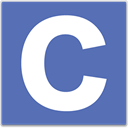Top Go (Programming Language) Alternatives for Your Next Project
Go, also known as Golang, is a programming language developed at Google, renowned for its efficiency, concurrency, and powerful standard library. It's a statically-typed language often chosen for backend services, command-line tools, and network programming. However, like any technology, Go might not be the perfect fit for every project or every developer's preference. This article explores the best Go (Programming Language) alternatives, offering diverse paradigms and capabilities to suit a wider range of development needs.
Best Go (Programming Language) Alternatives
Whether you're looking for a language with a more flexible syntax, broader community support for specific domains, or a different approach to memory management, these alternatives provide compelling options to consider for your next software endeavor.

Python
Python is an interpreted, interactive, object-oriented, and extensible programming language. It offers an extraordinary combination of clarity and versatility, making it a strong Go (Programming Language) alternative, especially for web development, data science, and AI. Python is free and open-source, available across multiple platforms including Mac, Windows, Linux, and more. Key features include its high-level nature, dynamic typing, garbage collection, and robust modular system.

Java
Java is a general-purpose, concurrent, class-based, object-oriented programming language designed for minimal implementation dependencies. Its 'write once, run anywhere' philosophy makes it a powerful Go (Programming Language) alternative for enterprise-level applications, Android development, and large-scale systems. Java is free and open-source, with extensive support for Windows, Mac, Linux, Android, and various mobile platforms. It boasts features like cross-platform compatibility, object-oriented programming, and automatic garbage collection.

C (programming language)
C is a general-purpose programming language that is one of the most widely used of all time. As a low-level, compiled language, C serves as a foundational Go (Programming Language) alternative for systems programming, embedded systems, and high-performance computing where direct memory control is crucial. It is free and open-source, available on Mac, Windows, Linux, Android, and many other platforms. Notable features include its ability to work at the kernel level, compiled nature, and manual memory management.

C++
C++ is a statically typed, free-form, multi-paradigm, compiled, general-purpose programming language. It’s considered an intermediate-level language and a robust Go (Programming Language) alternative for performance-critical applications, game development, and complex systems. C++ is free and open-source, supported across Mac, Windows, Linux, and BSD. Its strengths lie in systems programming, object-oriented capabilities, and being a compiled language.

Ruby
Ruby is a dynamic, reflective, general-purpose object-oriented programming language, often favored for its developer-friendly syntax and productivity. It stands as a viable Go (Programming Language) alternative for web development (especially with Ruby on Rails), scripting, and rapid prototyping. Ruby is free and open-source, available on Mac, Windows, Linux, BSD, and Haiku. It features dynamic typing, a robust package manager, and a powerful interpreter.

C#
C# (C-sharp) is a multi-paradigm programming language developed by Microsoft, encompassing strong typing, imperative, declarative, functional, generic, and object-oriented paradigms. It's a strong Go (Programming Language) alternative within the .NET ecosystem for Windows desktop applications, game development (Unity), and web services. C# is free and open-source, running on Mac, Windows, Linux, and BSD. It is a compiled, object-oriented language with extensive capabilities.

Rust
Rust is a systems programming language known for its blazingly fast performance, memory safety, and prevention of almost all crashes and data races. It's an excellent Go (Programming Language) alternative for building high-performance, reliable software, from operating systems to web services. Rust is free and open-source, supported on Mac, Windows, Linux, and BSD. Its key features include strong typesafety, a robust package manager, pattern matching, and static typing.

Lua
Lua is a powerful, fast, lightweight, and embeddable scripting language. It's often used for extending applications, game development, and scripting, making it a niche but effective Go (Programming Language) alternative for specific integration needs. Lua is free and open-source, available across Mac, Windows, Linux, Android, iPhone, and various other platforms. Its strengths lie in its scripting capabilities and use for configuration.

Perl
Perl is a high-level, general-purpose, interpreted, dynamic programming language with a long development history. It's a versatile Go (Programming Language) alternative, particularly strong in text processing, system administration, and web development due to its powerful regular expressions and extensive CPAN module repository. Perl is free and open-source, supported on Mac, Windows, Linux, BSD, and Haiku. Its notable feature includes strong shell integration.

Dart
Dart is a web programming language developed by Google, primarily known for building cross-platform mobile, desktop, and web applications with the Flutter framework. It serves as a compelling Go (Programming Language) alternative for client-side development and building beautiful, natively compiled applications from a single codebase. Dart is free and open-source, available on Mac, Windows, Linux, and Web platforms.
Choosing the right programming language depends heavily on your project's specific requirements, your team's expertise, and the long-term goals. While Go excels in concurrency and performance for specific use cases, these Go (Programming Language) alternatives offer diverse strengths across various domains, from web development and data science to systems programming and game development. Explore each option to find the best fit for your unique needs and development philosophy.